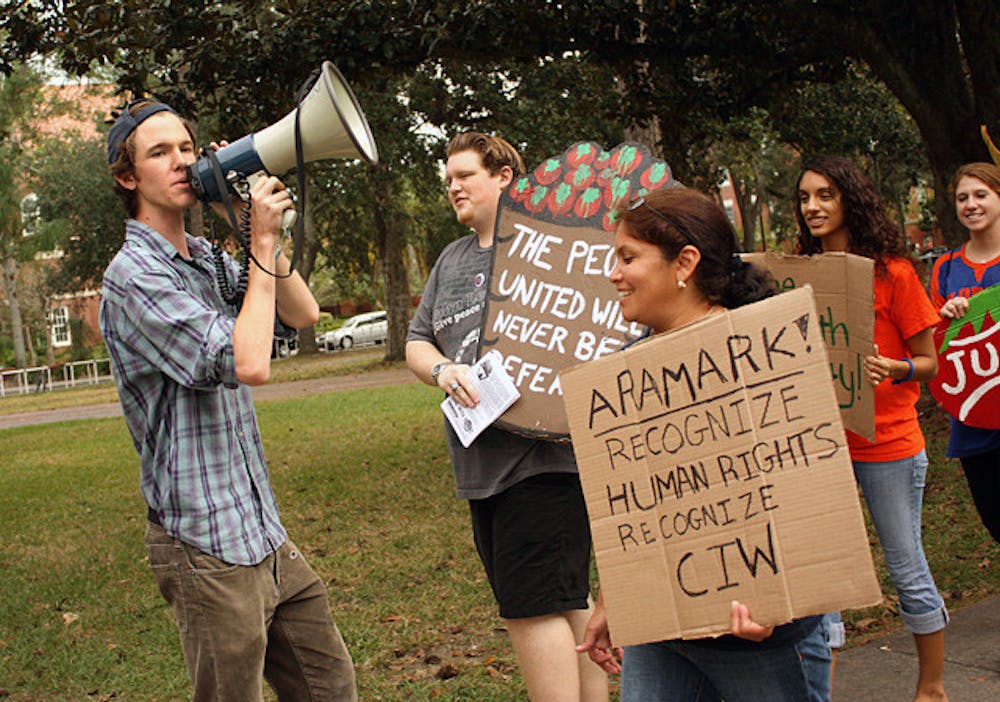Silvia Perez has worked in the fields picking tomatoes for 17 years.
Perez, 35, usually wakes up at 4 a.m. to look for work because she does not have a steady job. Every day is a new search for a new employer, she said.
To make $50 a day, she must pick 2 1/2 tons of tomatoes. Because the same field can be harvested up to four times, she may reach that quota during the field's first harvest but only scrounge up enough tomatoes during the fourth harvest to earn $20 for the day's work.
Perez is one of about 30 members of the Coalition of Immokalee Workers, a community-based organization of Latino, Mayan Indian and Haitian immigrants employed in low-wage jobs throughout Florida.
More than 100 people gathered on the Plaza of Americas Saturday holding signs and shouting "Down, down with exploitation! Up, up with the fair food nation!" The demonstration's purpose was to place pressure against the Aramark Corp. and Publix Super Markets to pay a penny more per pound of tomatoes, as well as to guarantee more dignified working conditions for tomato pickers.
Protesters marched from the Plaza of the Americas to the Reitz Union, where several speakers, including Dave Schneider, a member of Students for a Democratic Society, spoke to the crowd about the campaign.
"This is a struggle that involves all of us," Schneider said during his speech. "The fact that we can walk into the Reitz and buy a sandwich that has a tomato on it that more than likely came from Immokalee - we have a connection right there."
Marchers then made their way to Gator Corner Dining Center, where they stood at the front of the building calling for justice for the Immokalee workers.
About 30 protesters continued the trek to the Publix Super Market on the corner of West University Avenue and Southwest 34th Street, while others drove and rejoined them.
About 100 people marched on the sidewalk in front of the store, calling for Publix to listen to their demands.
Dwaine Stevens, a spokesman from Publix's division in Jacksonville, Fla., said the company buys tomatoes at a fair market price and will continue to do business because they do not set tomato prices.
A delegation of about seven protesters met with Publix officials at the site to give them letters written to the manager and several pages of signatures from supporters of the cause.
Stevens said he respected their right to protest and would take the documents to Publix's corporate offices.






